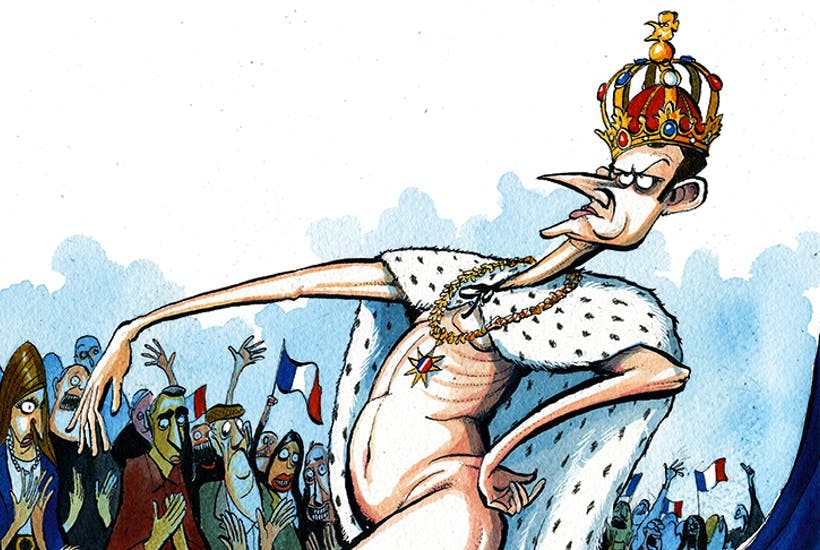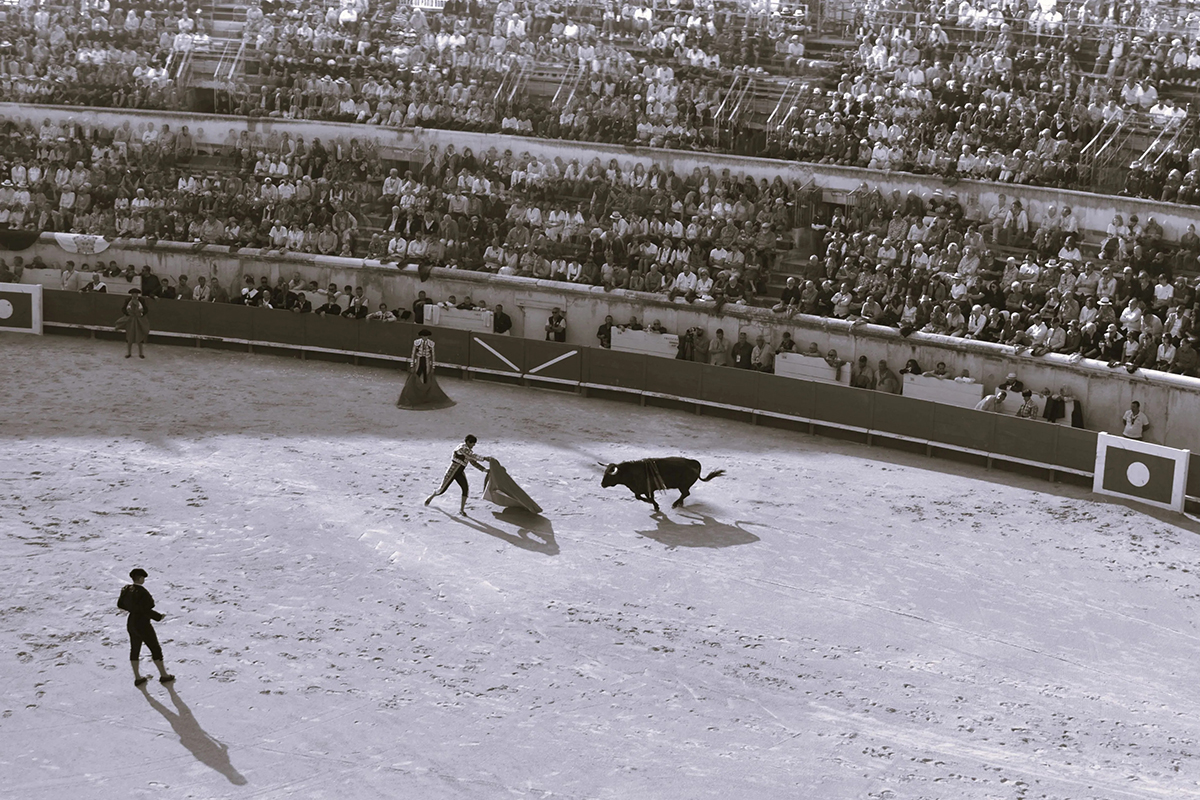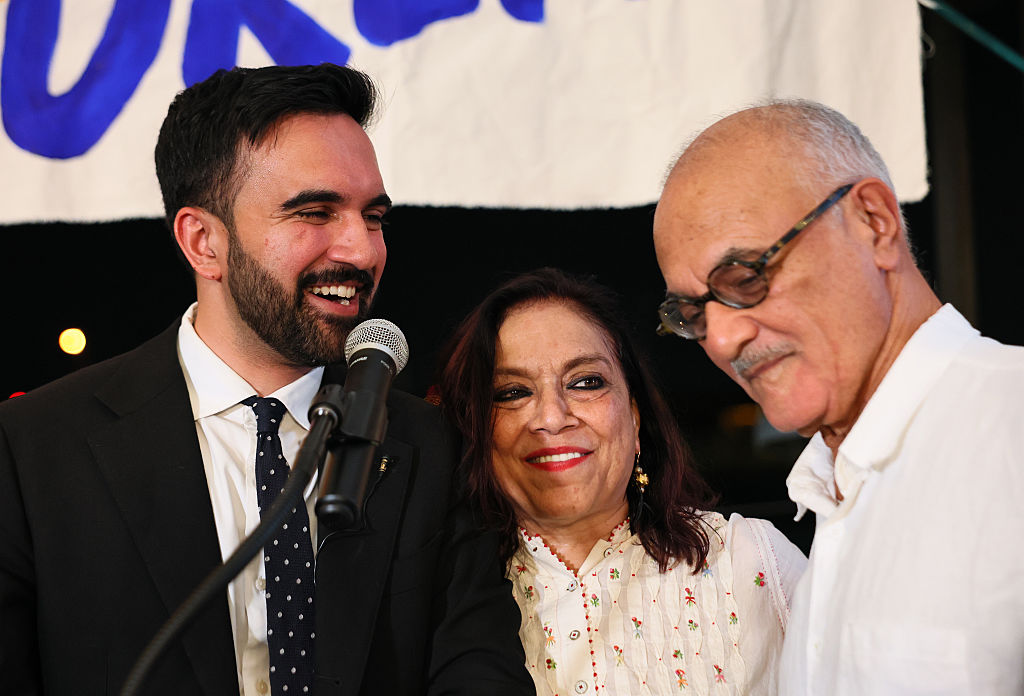In the course of his three-and-a-half year presidency, Emmanuel Macron must have the record for the most number of international states antagonized in the shortest time. From eastern Europe to the United States via Brexit he has the knack of putting states’ backs up by a mixture of outdated Gaullian pomposity, lesson-giving and base tactlessness. The latest and most dangerous variant is with Turkey, which is already spilling over to the wider 1.5 billion Muslim world.
Macron’s differences with President Erdogan are not new. They have crossed swords over Libya (where Macron supports the renegade general Haftar and Erdogan the UN-backed faction), Nagorno-Karabakh (Macron for Armenia, Erdogan for Azerbaijan), the Aegean Sea and now over the Islamist beheading on October 16 of the French school-teacher who showed his pupils the Charlie Hebdo cartoons of the Prophet Mohammed.
France has recalled her ambassador to Turkey ‘for consultations’ after Erdogan stated that ‘Macron needs mental treatment’ for his campaign to protect France’s secular values against radical Islamism. Turkey has called for a boycott of French produce, which is now underway via social media in Qatar, Kuwait, Iran, Pakistan and spreading fast.
In Trumpian style on Monday night Macron took to Twitter to proclaim in French, English and Arabic citing universal values that France’s history is that of ‘a struggle against tyranny and fanaticism’. Stating emphatically ‘We will continue [to do so]’. This escalated things dramatically on social media in Algeria and across North Africa with death threats against Macron and now cyber attacks on numerous French websites, including a page belonging to France’s prime television channel TF1.
Whereas previous French leaders from de Gaulle to Chirac would have cooled things down, Macron’s tactless temperament has brought events to dangerous levels. The problems are numerous. Both Macron and Erdogan have similar electoral deadlines — Macron 2022, Erdogan 2023 — motivating a play to domestic audiences. Erdogan wants to obscure Turkey’s economic problems, Macron to obscure poor Covid management and to steal a march on Marine Le Pen’s populist right, whose trenchant criticism of Macron’s security policies on radical Islam and immigration are already a major electoral struggle.
But what is particularly dangerous in this escalation is its impact on France’s Muslim population of around five-six million, according to a 2017 Pew Research survey (though French law prohibits census data on the basis of ethnicity or religion). Most French Muslims are integrated, but a hardcore youthful fringe in France’s banlieues are easily radicalized and have contributed to almost a decade of home-grown Islamic terrorism. With Erdogan’s spokesman fueling those fires by declaring that Macron’s treatment of Muslims in France was ‘eerily’ similar to ‘the demonization of European Jews in the 1920s’, one can see where all this could lead.
[special_offer]
Moreover, France is geographically on the fault-line along the southern Mediterranean rim with Muslim-majority states from Morocco to Egypt, many of which are unstable, highly volatile and susceptible to Islamic fundamentalism. Radical Islamic opposition parties have increased in popularity in Morocco, Algeria and Tunisia, all of which have direct links to France’s immigrant population. If the 1990s domino theory for Islamic fundamentalism to topple regimes across the Maghreb came to pass, France would be on the frontline. Add to that Erdogan’s campaign to present himself as the leader of the Sunni movement in the Islamic world (French Muslims are predominantly Sunni from North Africa) and one might have thought that Macron would act with greater statesmanship.
Macron’s problem is that he is too wedded to the old revolutionary conceit that French values are universalist values; what is good for France is good for humanity in general. That goes for freedom of speech, separation of Church and State and the rigorous state secularism of laicité. Yet the great French leaders of the 19th and 20th centuries, unlike Macron, were cautious about foisting those values on peoples abroad. As one of the founding fathers of the French Third Republic, Léon Gambetta, proclaimed: ‘Anticlericalism is not an item for export.’
Macron is a deeply unpopular figure on the international scene, even with France’s allies. It is significant how weak EU support has been for the French president in his standoff with Erdogan. Ironically it is likely to be Nato — so recently trashed by Macron as ‘brain dead’ — that will come to his rescue, especially as Turkey is a member. It will apply the diplomacy and statecraft that Macron so lacks to resolve the issue. If not then Macron is in jeopardy of provoking all on his own the ‘Clash of Civilizations’ predicted by the political scientist Samuel Huntington in his 1993 theory about future wars being fought not between states but between cultures, with Islamic fundamentalism the biggest threat.
This article was originally published onThe Spectator’s UK website.

























